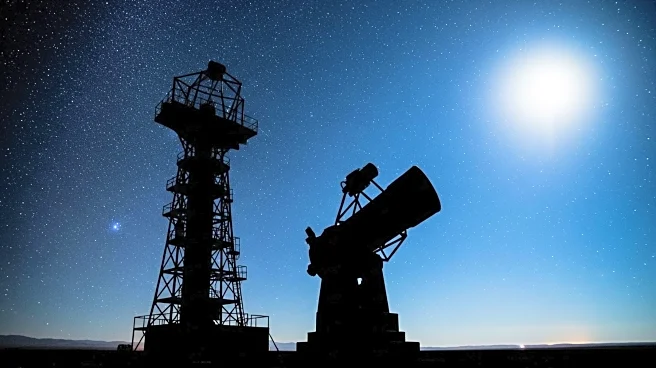What's Happening?
The Atacama Desert, known for its dry air and minimal light pollution, hosts some of the world's most advanced telescopes. These telescopes, located at sites like Cerro Pachón and Cerro Tololo, are part of the US National Science Foundation's NOIRLab. This facility is dedicated to ground-based optical and infrared astronomy, enabling significant scientific discoveries. The observatories are managed by the Association of Universities for Research in Astronomy (AURA) and play a crucial role in astronomical research.
Why It's Important?
The telescopes in the Atacama Desert are vital for advancing our understanding of the universe. They allow scientists to study phenomena ranging from near-Earth objects to distant galaxies and dark matter. The research conducted here contributes to global scientific knowledge and supports the development of new technologies and methodologies in astronomy. The collaboration between different facilities highlights the importance of international partnerships in scientific exploration.
Beyond the Headlines
The presence of these telescopes in the Atacama Desert also underscores the ethical and cultural considerations of scientific research in remote areas. The impact on local communities and the environment must be balanced with the pursuit of knowledge. Additionally, the infrastructure supporting these observatories represents significant human effort and investment, showcasing the dedication to expanding our cosmic understanding.











